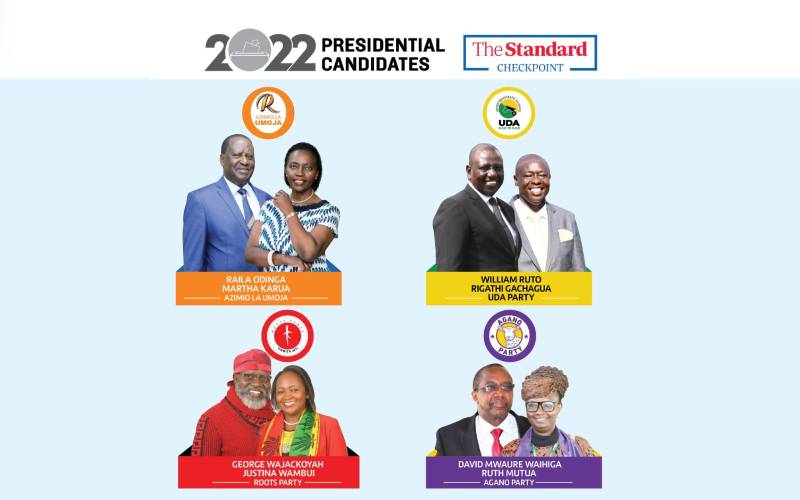×
The Standard e-Paper
Kenya’s Boldest Voice

The clearance by the Independent Electoral and Boundaries Commission (IEBC) of four candidates for the August 9 presidential race marked the end of a lengthy preliminary winnowing process to identify President Uhuru Kenyatta’s successor.
Out of an initial 57 candidates that sought to take up the presidential baton, only four got the nod from the electoral agency, setting the stage for a gruelling race – a battle for the minds and souls of more than 22 million voters, through wit and tact.